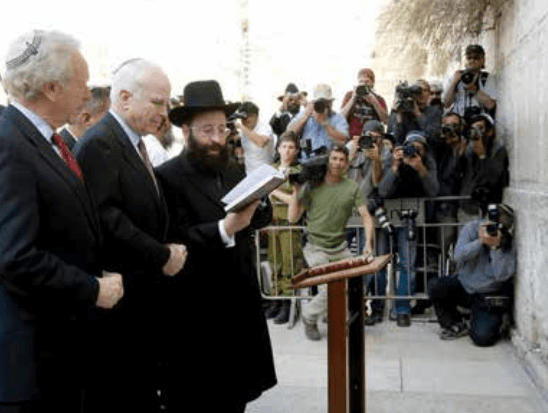The original article is published at JPost.com
I never asked the late Senator Joe Lieberman directly about his favorite source of information about Israel and the Jewish world – but I am fairly sure he would have said it was The Jerusalem Report. He once took my personal copy of the Report from the prayer book and chumash holder in synagogue –and proceeded to spend the next hour reading it!
When we moved to New Haven, Connecticut in 2003, we joined the local Orthodox synagogue – which does not have assigned High Holy Day seats. To be sure I wasn’t sitting in a member’s coveted seat, I chose a seat two rows from the back, on the right, about seven seats in – right next to the mechitza – a seat sure to be near no one. I sat, put on my tallis, opened my machzor, and prepared for a long day of prayers. I unpacked the two pieces of reading material I had brought along in case of boredom – Jewish Education News and The Jerusalem Report.
To my surprise, a man with a great head of white hair and an even finer smile passes in front of me and sits right next to me. I was a bit star struck as it was obviously Senator Lieberman, the man who was on the ticket with Al Gore three years earlier and was contemplating a bid for the 2004 presidency of the United States of America! Instead of introducing myself or asking the obvious question of who he was, I pointed to my magazines and said, “If you get bored, feel free to help yourself.”
“No thanks, I will read my machzor,” he replied. Ten minutes later, the senator asked, “What have you got?” I showed him his choices, he looked carefully, and chose The Jerusalem Report. I vividly remember the cover – it was an in-depth look at the security fence whose first phase – around three parts of Jerusalem – was approved in March of 2003. Later proposed phases would separate the West Bank from Jerusalem. The senator, who moments earlier seemed intent on focused prayer, was now deep into a series of articles on the multitude of complex issues around the building of the fence.
Ironically, as I watched the senator read my Jerusalem Report, I had been writing fairly regularly for the publication – mainly providing interesting anecdotes from the Jewish World for the Up Front section. This was the “best article I could never write.” I needed to respect his privacy. This was congregant and community member Joe who was here to daven and celebrate the holiday with family and friends.
When the holiday ended, I raced to my computer to share this story with Sharon Ashley, who was at the time the deputy editor. I suggested she and the Report send an anonymous subscription to The Jerusalem Report to Senator Lieberman’s Washington, DC office.
I can only assume that he continued to read every issue cover to cover and that the fair, in-depth coverage of even the most complex issues continued to shape his views – and in turn, US government policy.
The hundreds of tributes following the senator’s sad and untimely death, on March 27 from all parts of the Jewish world – and from both sides of the aisle – captured what a sensible and good man Senator Joe Lieberman was. He was truly liked by all. Despite his ability to get along with everyone, I suspect he usually had to dress and act the part of an elected official.
In our Westville neighborhood of New Haven, Joe Lieberman will be remembered mostly as a member of the Westville Synagogue and a community member. He ate and socialized at the same Kiddush, danced with us at community simchas, and came to morning minyan when he was in town. He drove himself to shul in his car with tinted glass and even wore blue jeans and flannel shirts. He made the same 30-minute walk to shul through our quiet neighborhood each Shabbat and holiday when he was in town – though he was the only community member with Secret Service members walking with him and driving right next to him.
And he got through the boring parts of shul by reading such fine publications as The Jerusalem Report!

